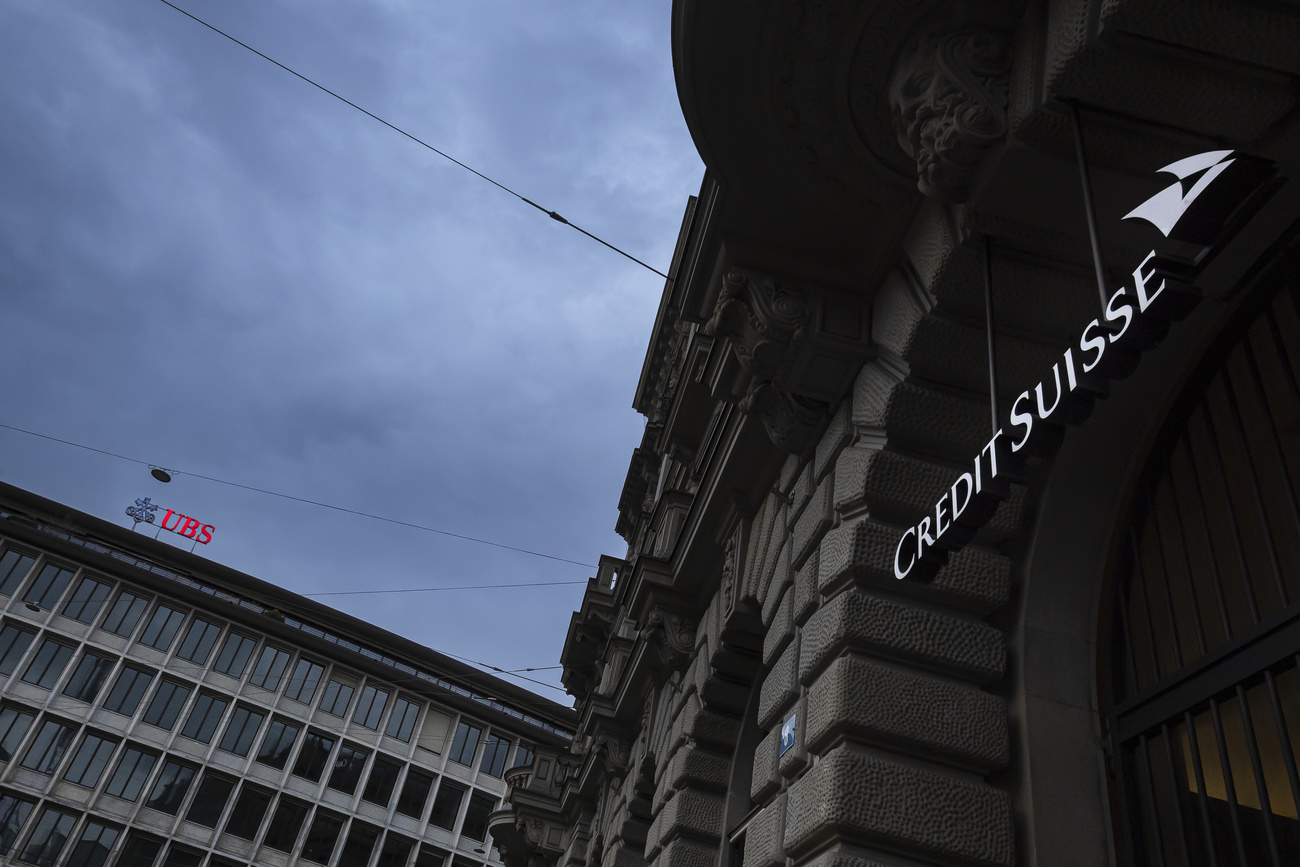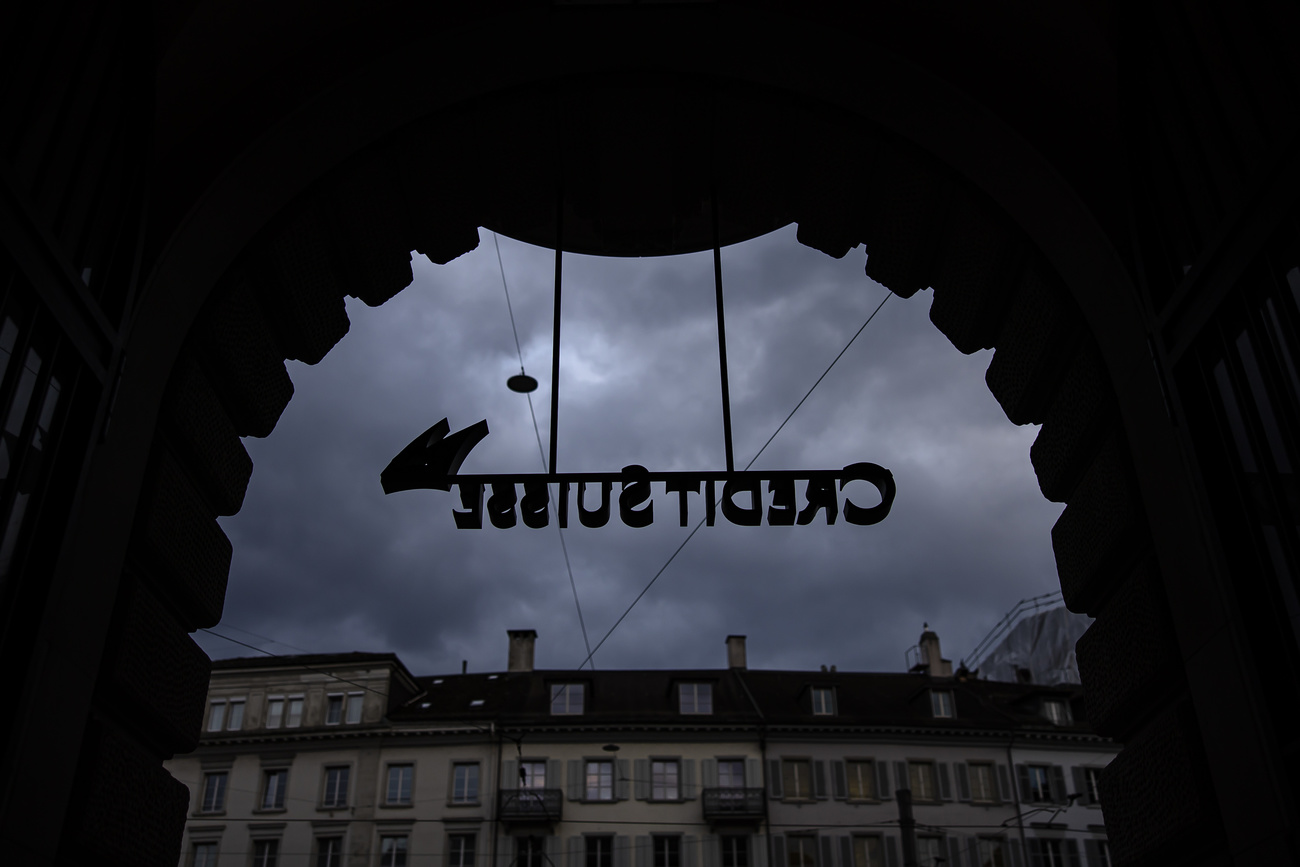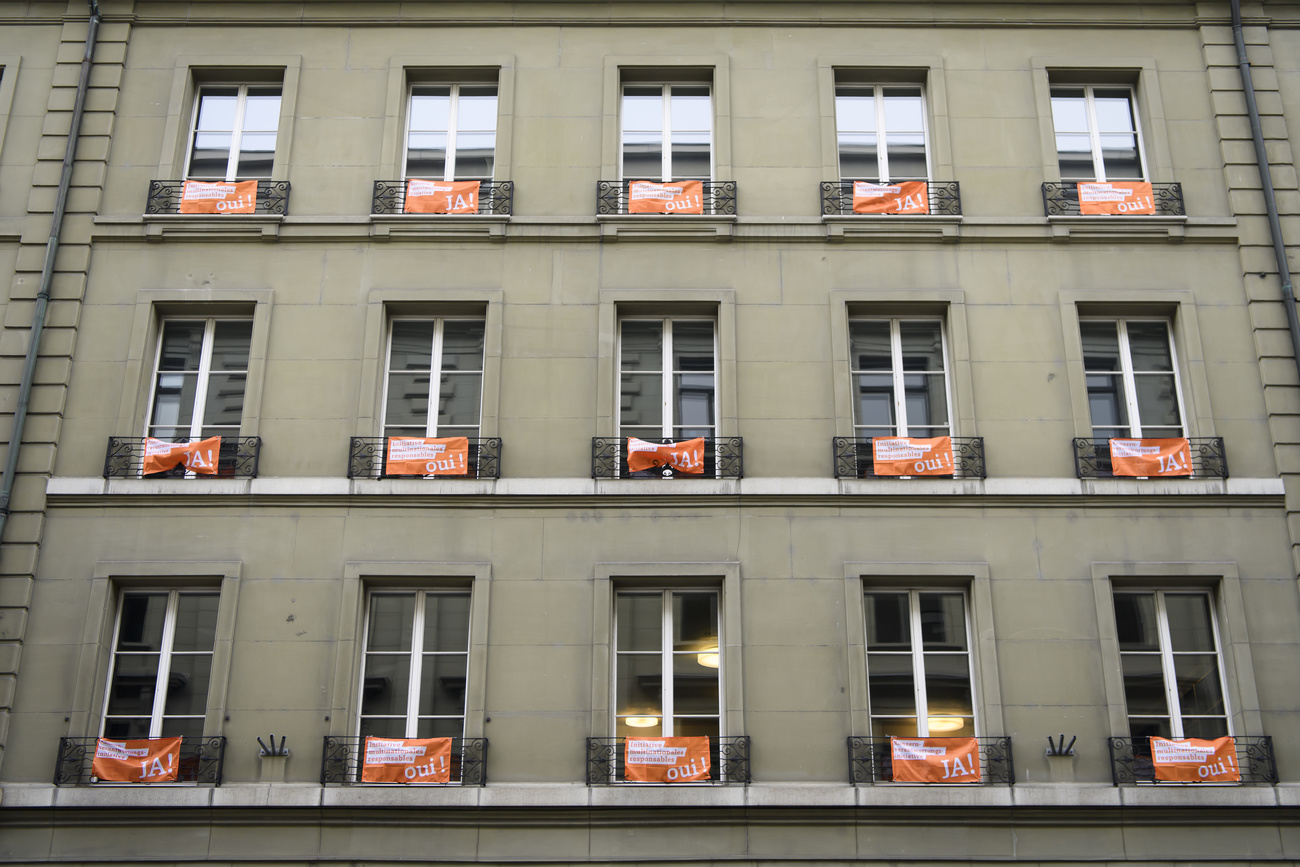

Switzerland Today
Dear Swiss Abroad,
The dark past of the Swiss banking sector is once again making headlines, with recent revelations about Nazi-linked accounts. Several newspapers have interviewed historians and experts on the subject.
Today also marks the tenth anniversary of the Charlie Hebdo attack. How has the landscape changed for cartoonists in Switzerland over the past decade?
Additionally, the "For Responsible Business" initiative, which failed at the ballot box in 2020, is making a comeback as a petition campaign aims to revive the issue.
Finally, many Swiss companies face a pressing problem: finding successors to take over as managers retire.
Enjoy the read!

Nazi-linked accounts at Credit Suisse
Last weekend previously unknown or only partially known documents revealed the existence of accounts at Credit Suisse linked to the Nazis. The Swiss press has been discussing the matter in detail with experts.
According to an investigation by the US Senate budget committee, Credit Suisse withheld information during earlier probes into accounts tied to Nazis during the Second World War.
This news comes as no surprise to historians Sacha Zala and Marc Perrenoud. The latter, a member of the Bergier Commission that examined Switzerland’s wartime history from 1996 to 2001, explained that the commission had more documentation than it could examine within its five-year mandate. “The Bergier Commission brought to light so much documentation that we were not able to examine it all between 1996 and 2001, the five years of our mandate,” Perrenoud said in an interview published today in Swiss newspaper Le Temps.
“We suspected some banks were hiding information, but we had no proof,” Perrenoud said. He added that deploying police inspectors to verify archives was an option but carried the risk of destruction of evidence. Perrenoud now calls for further research. In the case of “too big to fail” banks, saved by a lot of public money, “the population should have the right to be informed about their history”, he says.
- The interview with Marc Perrenoud in Le TempsExternal link (in French) and Sacha Zala in Swiss public television, RSIExternal link (in Italian)
- Article on the US revelations by Swiss public television, RSIExternal link (in Italian)

Cartooning in Switzerland ten years after Charlie Hebdo attack
Ten years after the Islamist attack on the editorial office of the satirical newspaper Charlie Hebdo, in which 12 people were killed, Arcinfo spoke to Swiss cartoonists about how their profession has evolved.
Swiss satirical cartoonists Vincent L’Épée, Patrick Chappatte and Nicolas Sjöstedt (aka Jo Ted) agree that the enormous support for Charlie Hebdo and cartoonists shown after the attack has collapsed, and society has grown more puritanical – though this is not directly linked to the events of January 7, 2015.
“Society as a whole has changed,” said Sjöstedt. “Today, when it comes to humour, you have to tread carefully, even with people close to you.” L’Épée echoes this sentiment: “In recent years, the libertarian spirit has taken a hit, but this is not related to ‘Charlie’. Today, society is more polarised and editorial offices have become more fearful.”
For Patrick Chappatte the Charlie Hebdo attack was the 9/11 for cartoonists. Chappatte recalls that after the Charlie Hebdo attack, the New York Times commissioned him to create a cartoon. The cartoon then stayed on its homepage for an entire day. However, just four years later, the New York Times stopped publishing satirical cartoons altogether.
- The full article by ArcinfoExternal link

Push to revive corporate responsibility initiative
A new initiative aimed at holding Swiss multinationals accountable for human rights and environmental violations was presented in Bern on Tuesday. The committee behind it hopes to gather 100,000 signatures to bring the issue back to a public vote.
In 2020, the “For Responsible Business” initiative won 50.7% of the popular vote but was rejected by a majority of cantons. A counter-proposal requiring companies to report on social and environmental impacts came into effect in 2022 but has been criticised as ineffective.
Since then, countries such as Germany and Norway have enacted stricter laws, and the EU has adopted a directive on corporate due diligence. The Swiss initiative committee argues that progress on the issue has stalled at the federal level. The new proposal seeks binding rules to ensure Swiss companies adhere to international human rights and environmental standards.
- Article by Swiss public television, RSIExternal link (in Italian)
- “How the EU relaunches the Swiss debate on corporate responsibility” – SWI swissinfo.ch’s in-depth look at the topic (available in Italian, French and German)

Swiss companies struggle with succession planning
Many companies in Switzerland face an uncertain future as, with many executives heading for retirement, it is not always easy to find a succession solution. This issue is particularly acute in small businesses and the construction industry, according to a report by Dun & Bradstreet.
Of the 650,000 companies in Switzerland, around 100,000 small firms were seeking successors in 2024, far more than two years prior. Even financially stable businesses are not immune to the trend, which is also affecting larger companies.
Alexandra Bertschi, a succession expert at PwC, attributes the problem to both demographic and cultural factors. “Fewer people are entering the workforce than leaving it,” she said. “Generation Z has different priorities and life patterns, which makes succession planning more challenging.”
- Article by Swiss public television, SRFExternal link (in German)

Picture of the day
Our photo editors often unearth traditions I was totally unaware of. Pictured above is a young participant in the Priis Chlepfae, a whip-cracking competition held annually on Epiphany in the main square of canton Schwyz.
More
Adapted from Italian by Alexandra MV Andrist/ts

In compliance with the JTI standards
More: SWI swissinfo.ch certified by the Journalism Trust Initiative





























